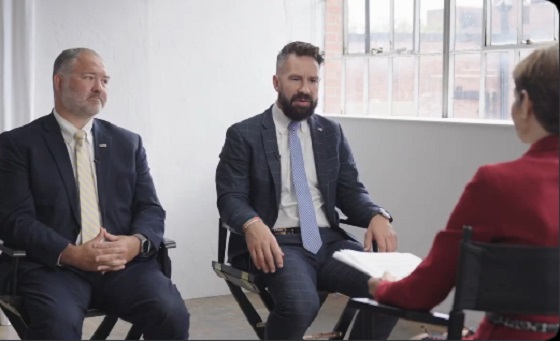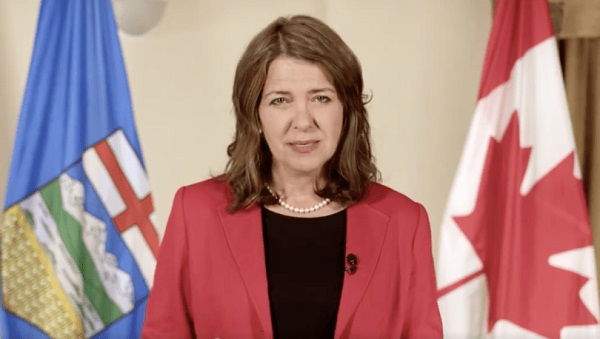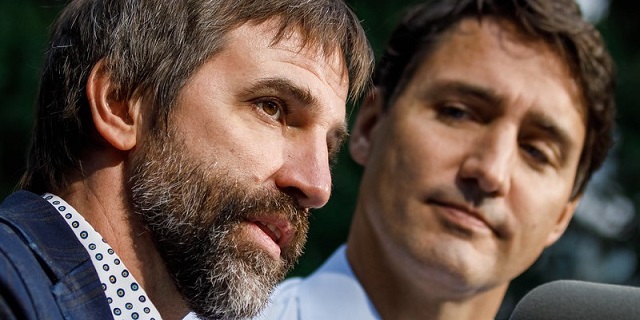Uncategorized
Mattis resigning as Pentagon chief after Trump disagreements

WASHINGTON —
Mattis, perhaps the most respected foreign policy official in Trump’s administration, will leave by the end of February after two tumultuous years struggling to soften and moderate the president’s hardline and sometimes sharply changing policies. He told Trump in a letter that he was leaving because “you have a right to have a Secretary of
Mattis went to the White House with his resignation letter in hand to meet with the president and spoke to Trump for about 45 minutes, according to a senior U.S. official familiar with the incident but speaking on conditions of anonymity to discuss a private meeting.
There was no confrontation between the two men, the official said, and there was no one issue that caused the resignation. However, the official said, Syria likely was the last straw for Mattis.
His departure was immediately lamented by foreign policy hands and lawmakers on both sides of the aisle, who viewed the retired Marine general as a sober voice of experience in the ear of a president who had never held political office or served in the military. Even Trump allies expressed fear over Mattis’ decision to quit, believing him to be an important moderating force on the president.
“Just read Gen. Mattis resignation letter,” tweeted Florida Sen. Marco Rubio. “It makes it abundantly clear that we are headed toward a series of grave policy errors which will endanger our nation, damage our alliances & empower our adversaries.”
Mattis did not mention the dispute over Syria in his letter or proposed deep cuts to U.S. forces in Afghanistan, another significant policy dispute. He noted his “core belief” that American strength is “inextricably linked” with the nation’s alliances with other countries, a position seemingly at odds with the “America First” policy of the president.
The
The announcement came a day after Trump surprised U.S. allies and members of Congress by announcing the withdrawal of all U.S. troops from Syria, and as he continues to consider cutting in half the American deployment in Afghanistan by this summer. The news coincided with domestic turmoil as well, Trump’s fight with Congress over a border wall and a looming partial government shutdown.
Trump’s decision to pull troops out of Syria has been sharply criticized for abandoning America’s Kurdish allies, who may well face a Turkish assault once U.S. troops leave, and had been staunchly opposed by the Pentagon.
Mattis, in his resignation letter, emphasized the importance of standing up for U.S. allies — an implicit criticism of the president’s decision on this issue and others.
“While the U.S. remains the indispensable nation in the free world, we cannot protect our interests or serve that role effectively without maintaining strong alliances and showing respect to those allies,” Mattis wrote.
Last year, Republican Sen. Bob Corker — a frequent Trump critic — said Mattis, along with White House chief of staff John Kelly and then-Secretary of State Rex Tillerson, were helping “separate our country from chaos.”
Tillerson was fired early this year. Kelly is to leave the White House in the coming days.
“This is scary,” reacted Senate Intelligence committee Vice Chairman Mark Warner, D-Va., on Twitter. “Secretary Mattis has been an island of stability amidst the chaos of the Trump administration.”
“Jim Mattis did a superb job as Secretary of
Mattis’ departure has long been
Opponents of Mattis, however, have seen him as an unwanted check on Trump.
Mattis went to the White House Thursday afternoon to resign after failing to persuade the president in a tense Oval Office meeting to change his decision on withdrawing troops from Syria, according to two people with knowledge of the conversation but not authorized to discuss it publicly.
Another U.S. official said that Mattis’ decision was his own, and not a “forced resignation.” The official spoke on condition of anonymity to discuss internal deliberations.
Trump said a replacement would be chosen soon.
“The president’s national security team’s job is to give him advice and it’s the president’s job to make a decision,” said press secretary Sarah Sanders.
At the start of the Trump administration, the president had gushed about his respect for Mattis, repeatedly calling him “Mad Dog,” despite Mattis’ own public insistence that the moniker was never his. Instead, his nickname for years was CHAOS, which stood for “Colonel Has An Outstanding Suggestion,” and reflected Mattis’ more cerebral nature.
The two quickly clashed on major policy decisions.
During his first conversations with Trump about the Pentagon job, Mattis made it clear that he disagreed with his new boss in two areas: He said torture doesn’t work, despite Trump’s assertion during the campaign that it did, and he voiced staunch support for traditional U.S. international alliances, including NATO, which Trump repeatedly criticized.
Mattis was credited by some in the administration for blocking an executive order that would have reopened CIA interrogation “black sites.” Trump has said the Pentagon chief convinced him it wasn’t necessary to bring back banned torture techniques like waterboarding.
En route to his first visit to Iraq as
The two also were divided on the future of the Afghanistan war, with Trump complaining from the first about its cost and arguing for withdrawal. Mattis and others ultimately persuaded Trump to pour additional resources and troops into the conflict to press toward a resolution.
U.S. officials say there now is active planning in the Pentagon that would pull as many as half the 14,000 U.S. troops out of Afghanistan by summer. They say no final decision has been made.
Trump also chafed at the Pentagon’s slow response to his order to ban transgender people from serving in the military. That effort has stalled due to multiple legal challenges.
More recently, Trump bypassed Mattis’ choice for the next chairman of the Joint Chiefs of Staff. Gen. David Goldfein, the Air Force chief, was Mattis’ top choice, but Trump chose Gen. Mark Milley, the chief of the Army.
The Pentagon has appeared to be caught off guard by a number of Trump policy declarations, often made through Twitter. Those include plans that ultimately fizzled to have a big military parade this month and the more recent decision to send thousands of active duty troops to the Southwest border.
Mattis has determinedly kept a low public profile, striving to stay out of the news and out of Trump’s line of fire.
Those close to him have repeatedly insisted that he would not quit, and would have to either be fired or die in the job. But others have noted that a two-year stint as
Born in Pullman, Washington, Mattis enlisted in the Marine Corps in 1969, later earning a history degree from Central Washington University. He was commissioned as an officer in 1972. As a lieutenant colonel, he led an assault battalion into Kuwait during the first U.S. war with Iraq in 1991.
In the aftermath of the
Two years later, he helped lead the invasion into Iraq in 2003 as the two-star commander of the 1st Marine Division. As a four-star, he led Central Command from 2010 until his retirement in 2013.
__
Associated Press writers Jill Colvin and Robert Burns contributed.
Zeke Miller And Lolita Baldor, The Associated Press
Uncategorized
RCMP to create fake online profiles to track Canadian ‘extremists’: docs

From LifeSiteNews
According to internal documents, the RCMP plans to conduct undercover surveillance on Canadians by creating fake online accounts and tracking what they consider ‘ideological extremists,’ which may include pro-family, pro-life and pro-freedom content.
Canada’s national police force, the Royal Canadian Mounted Police (RCMP), is planning to create fake online accounts to target Canadian “extremists.”
According to an internal strategy document, the RCMP plans to conduct undercover surveillance on Canadians by creating fake online accounts and tracking what they consider “ideological extremists,” which could include pro-family, pro-life and pro-freedom content.
“The RCMP’s lack of a covert online presence was previously highlighted in the OIR (Operational Improvement Review), which recommended that the RCMP develop its own online undercover program to assist with national security criminal investigations,” the RCMP internal document stated.
The document, obtained by an Access to Information request and shared with CBC News, reveals that the Federal Policing National Security is “currently taking steps to address this recommendation through proactive legend-building and backstopping personas, but this work needs to be prioritized and accelerated in order to meet future demand for online undercover activities.”
“Undercover police investigations, among many tools, remain an effective technique to thwart the commission of serious crime and resolve historic offences,” the plan continued. “The focus is on uncovering the truth, verifying facts and determining if someone is involved.”
According to the RCMP, violent extremism is divided into three categories: religiously motivated extremism, politicly motivated extremism, and ideologically motivated extremism.
Ideologically motivated extremis is further categorized into xenophobic violence, gender-driven violence, anti-authority violence, and “other grievance-driven and ideological motivated violence.” The last category includes environmental, animal rights, and “anti-abortion violence.”
While the RCMP’s move to monitor Canadians online is alarming, it is hardly the first time the government-run police force has spied on its citizens.
In 2022, the RCMP acknowledged it uses spyware to turn on or off the camera or microphone of a laptop or phone at will to eavesdrop on one’s conversations without the suspect even knowing it.
The same year, it was disclosed that Canadian Special Forces conducted surveillance flights over the trucker’s Freedom Convoy in February in a spy plane capable of eavesdropping on cell phone calls and tracking small movements, contrary to a military directive banning such flights.
Spying on and tracking Canadians for sharing pro-family and pro-freedom values could prove even more dangerous if Prime Minister Justin Trudeau’s Online Harms bill, which would punish “hate speech” online, is passed.
Bill C-63 was introduced by Justice Minister Arif Virani in the House of Commons in February and was immediately blasted by constitutional experts as troublesome. Put forth under the guise of protecting children from exploitation online, the bill also seeks to expand the scope of “hate speech” prosecutions, and even desires to target such speech retroactively.
Furthermore, the RCMP, like the rest of Canada’s government-run organizations, appears to have been infiltrated by woke activists who label pro-family, pro-freedom, and pro-life causes as “extreme” and “dangerous.”
In 2022, the RCMP issued a 16-page guide suggesting people tell on those who show any signs of “anti-government” or “anti-LGBTQ2” opinions on the internet.
“Some people hold social or political beliefs that may be considered ‘extreme’ or outside mainstream ideologies. Although some ideas alone may be concerning to those around them, it is when a person uses or actively supports violence to achieve ideological, religious or political goals that the police have a role to play,” the guide said.
Uncategorized
Conservative MP Leslyn Lewis calls out Liberals for not supporting anti-church burning bill
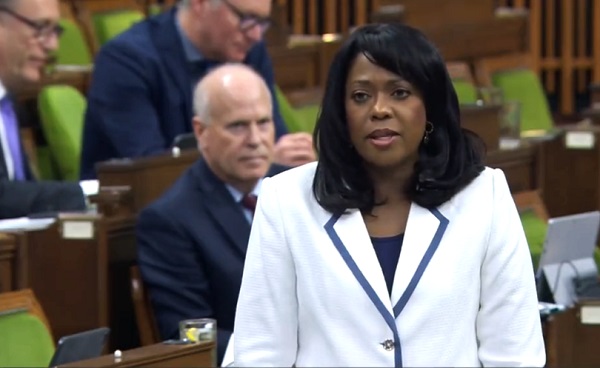
From LifeSiteNews
Speaking about the ‘hundreds of churches’ that have been ‘set on fire across Canada’ in the last number of years, Conservative MP Leslyn Lewis questioned why the Liberals seem completely unconcerned.
One of Canada’s most prominent pro-life MPs has called out the Trudeau government for its apparent lack of support for an anti-arson bill which aims to curb the rash of church burnings plaguing Christians in the country.
In an X post Monday, Conservative MP Leslyn Lewis pointed out that under the Liberal government of Prime Minister Justin Trudeau, church burnings have shot up “100 percent,” and that the government does not seem to have expressed any “concern” at all.
“In the last several years, hundreds of churches and other places of worship have been set on fire across Canada. Under this Liberal government, these crimes have increased by over 100%,” wrote Lewis on X.
“Where is the concern or action from the Liberals regarding these attacks on Christian churches?”
Lewis’s post included a link to another X post from Conservative MP Marc Dalton, who posted a video on October 31 highlighting the recent rash of church burnings and how his bill, C-411, aims to stop this.
“Thank you @MarcDalton for bringing forward Bill C-411, the Anti-Arson Act, an important bill to protect places of worship and increase penalties on those who would target them,” wrote Lewis.
Bill C-411, or, An Act to amend the Criminal Code (arson — wildfires and places of worship), was introduced by Dalton in June.
The law, if passed, would create specific criminal offenses for setting fires to churches and for starting wildfires.
Dalton said in his video that there is a “serious problem in Canada that must be addressed” concerning Catholic and Christian churches being the target of arson.
He highlighted how since 2010, 592 churches have been the target of arson in Canada, with a large portion of these being concentrated to the last few years.
Dalton noted how Canada’s Criminal Code, as it stands, does not include specific protections against arson directed at religious institutions. C-411 aims to “change that,” said Dalton, noting that the bill would implement a minimum sentence of five years in jail for a first offense of this kind, and seven years for a repeat offense.
“This bill strengthens our criminal code and punishes these hateful arson attacks,” he said.
“Commonsense Conservatives stand for strict punishments against criminals who target places of worship.”
Since the spring of 2021, 112 churches, most of them Catholic, have been burned to the ground, vandalized or defiled in Canada.
The church burnings started in earnest after the mainstream media and the federal government ran with inflammatory and dubious claims that hundreds of children were buried and disregarded by Catholic priests and nuns who ran some of the now-closed residential schools in Canada, particularly a school in Kamloops, British Columbia.
The anti-Catholic narrative that developed following these claims continues to this day, despite the fact that no bodies have actually been discovered.
-
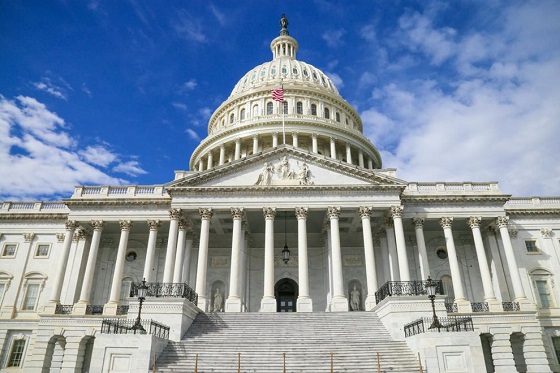
 International2 days ago
International2 days agoRepublicans on track to control all three branches of government
-
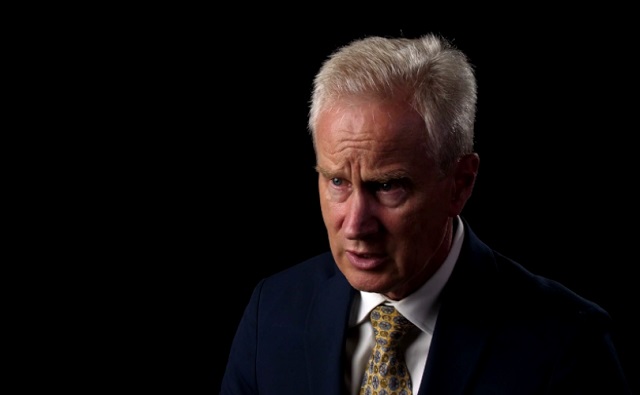
 COVID-192 days ago
COVID-192 days agoPeter McCullough urges Trump to pull dangerous COVID shots from the market, citing injuries, deaths
-

 Automotive2 days ago
Automotive2 days agoMajor Automaker Exec Flatly Says Liberals’ EV ‘Mandates’ Are ‘Impossible’ To Meet
-
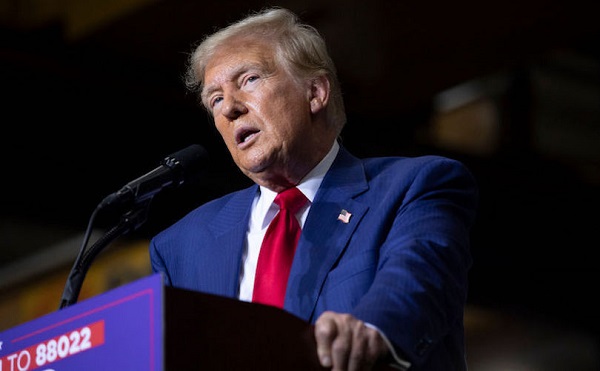
 International2 days ago
International2 days agoAt-large Iranian man charged in plot to assassinate Trump
-

 Uncategorized24 hours ago
Uncategorized24 hours agoRCMP to create fake online profiles to track Canadian ‘extremists’: docs
-

 International1 day ago
International1 day agoBells of Notre Dame Cathedral ring in streets of Paris for first time since 2019 fire
-
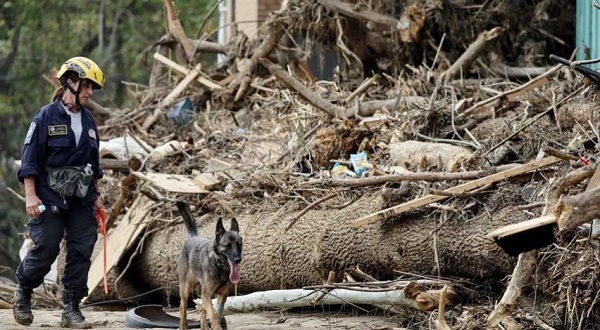
 Disaster1 day ago
Disaster1 day agoFEMA’s response to the hurricanes of 2024 – Inadequate, corrupt, and politically charged
-
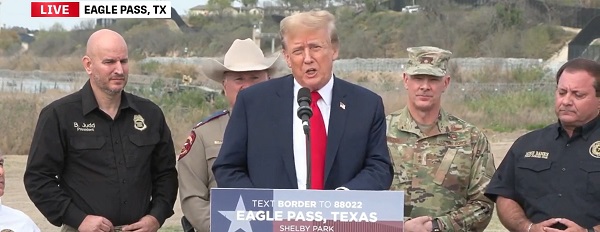
 Daily Caller1 day ago
Daily Caller1 day agoMass Deportations, Cracking Down On Sanctuary Cities And More: Here’s What Trump Has In Store For Immigration





